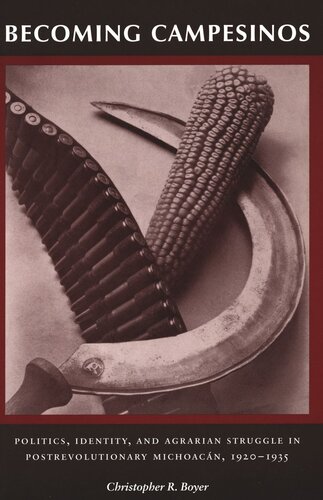

Most ebook files are in PDF format, so you can easily read them using various software such as Foxit Reader or directly on the Google Chrome browser.
Some ebook files are released by publishers in other formats such as .awz, .mobi, .epub, .fb2, etc. You may need to install specific software to read these formats on mobile/PC, such as Calibre.
Please read the tutorial at this link: https://ebookbell.com/faq
We offer FREE conversion to the popular formats you request; however, this may take some time. Therefore, right after payment, please email us, and we will try to provide the service as quickly as possible.
For some exceptional file formats or broken links (if any), please refrain from opening any disputes. Instead, email us first, and we will try to assist within a maximum of 6 hours.
EbookBell Team

4.7
46 reviewsBecoming Campesinos argues that the formation of the campesino as both a political category and a cultural identity in Mexico was one of the most enduring legacies of the great revolutionary upheavals that began in 1910. Challenging the assumption that rural peoples "naturally" share a sense of cultural solidarity and political consciousness because of their subordinate social status, the author maintains that the particular understanding of popular-class unity conveyed by the term campesino originated in the interaction of post-revolutionary ideologies and agrarian militancy during the 1920s and 1930s. The book uses oral histories, archival documents, and partisan newspapers to trace the history of one movement born of this dynamic—agrarismo in the state of Michoacán. The author argues that the interaction of grassroots militancy and political mobilization from the top meant that the rural populace entered the political sphere, not as indigenous people or rural proletarians, but as a class-like social category of campesinos.